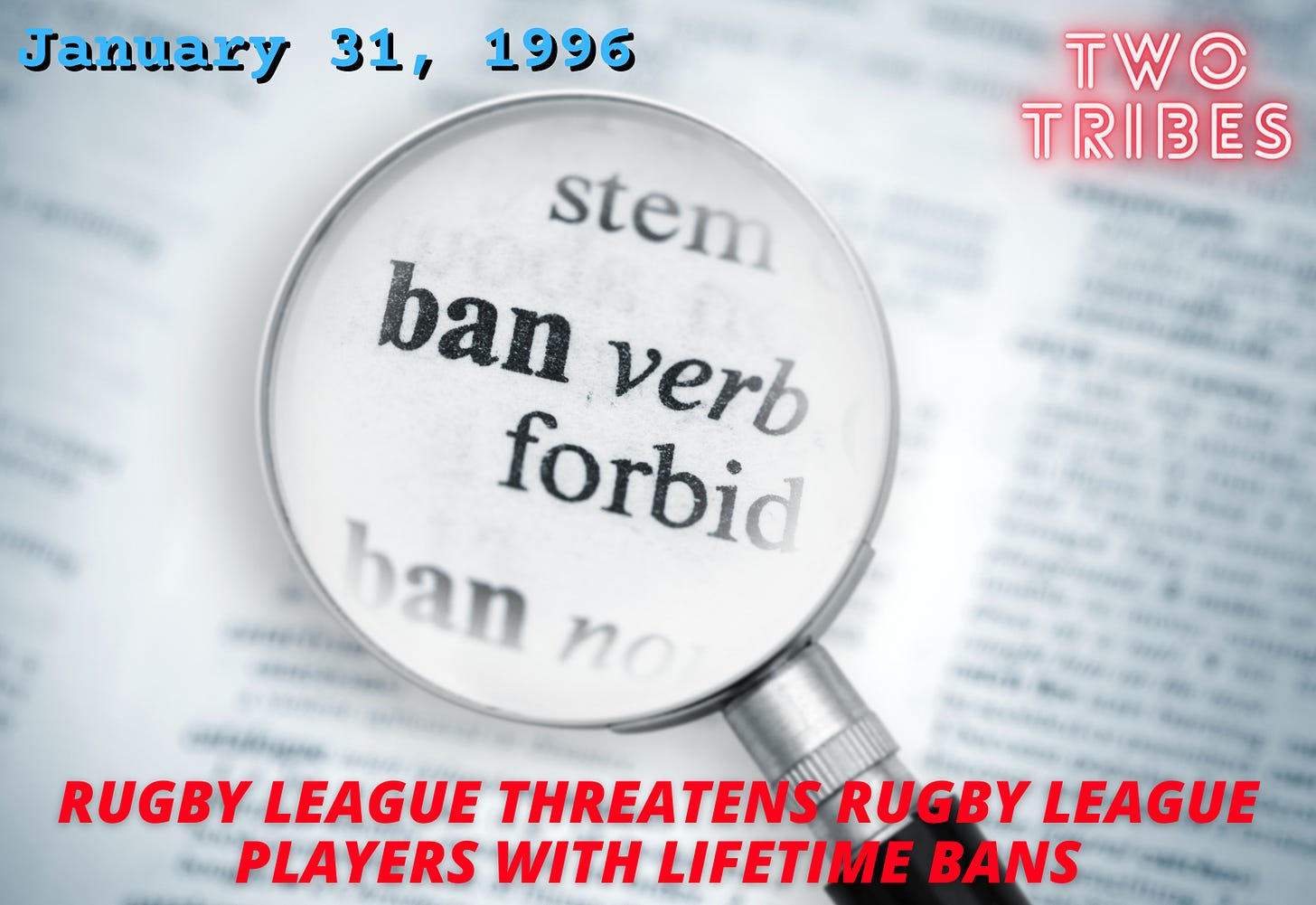January 31, 1996: Can league really take the high moral ground against union 'victimisation' when we did it to ourselves?
In 1996, some 50 players - many amateur or part-time - were threatened with lifetime international bans if they played in the ARL's World Sevens.
It’s part of rugby league fans’ self-image to believe they are on “the right side of history” because of victimisation from rugby union for more than century.
They banned amateur rugby league players from their sport for “tainting” themselves by playing the 13-man game, we are told.
We represent the oppressed working class, they they oppressors.
But what happened when we subdivided ourselves, when Australia were isolated by a pay television war and became outcasts as the rugby league world sided with News Corporation?
We threatened our own players - many of them amateur or part time - with life bans if they played in the Australian Rugby League’s World Sevens.
Yes, this sort of thing happened with pros. You read about it every day in 1995, 1996 and 1997. But park footballers from New Zealand, promising amateur athletes from Fiji, the entire country of Canada (which had no professional players)?
The fact is, war is hell. Rugby union had only rules and its inherent societal advantages to fight an opponent with a chequebook and over the course of the century from 1895, it used those weapons to win the war.
And when we had the chance, we were all too willing to turn those weapons against ourselves.
(If you’re here for the first time, welcome; we do this pretty much every day)
SOME SEVENS PLAYERS FACE LIFE BANS
Sydney Morning Herald, February 2 1996
By STEVE MASCORD
FIFTY players have been threatened with lifetime bans from international football effective the minute they take the field in the World Sevens this weekend.
New Zealand Rugby League officials last night issued a reminder to members of the Australian Rugby League's Kiwi Sevens team that they would be overlooked for future Test selection if they went ahead with plans to play for what the NZRL executive director, Mike Knowles, described as a "rebel team".
Graham Carden, the NZRL chairman and Super League World Nines tournament director, told the Herald he expected other countries to follow suit.
Britain, Fiji, Japan, Tonga, Papua New Guinea, the United States and New Zealand have each sent "unofficial" 10-man line-ups to the two-day, $250,000 Sydney tournament.
While the US governing body and the Japan Rugby League have not yet formalised their agreements with Super League, players in the other five teams can expect the cold shoulder when they return home when it comes to league internationals.
However, the best New Zealand, British and PNG players are expected to be given the chance to play in the ARL's proposed Rest of the World team.
England hooker Lee Jackson and Welsh half Kevin Ellis are members of the ARL's British side, while the New Zealand team includes some of that country's best youngsters.
The Port Moresby side has a core of Test players who have opted for weekly Queensland State League football over Test selection; the Fiji team comes from a new ARL competition there; and Japan is represented by the breakaway East Japan Rugby League.
The JRL is committed to Super League's World Nines in Suva from February 22.
Most of the Tongan players are New Zealand-based, and have been threatened with de-registration when they go home.
Sevens promoter Colin Love said the players knew the risks and were happy to support the event.
Members of the Australian team for the Nines will have medical examinations in Sydney today, with the breakaway movement's strip to be unveiled.
Canberra pair Mark Corvo and Luke Davico along with North Queensland's Dean Schifilliti - have been selected to represent Italy in the Nines.
The Country Rugby League chief executive, David Barnhill, is to be appointed to the Gold Coast board.




